Premium Only Content
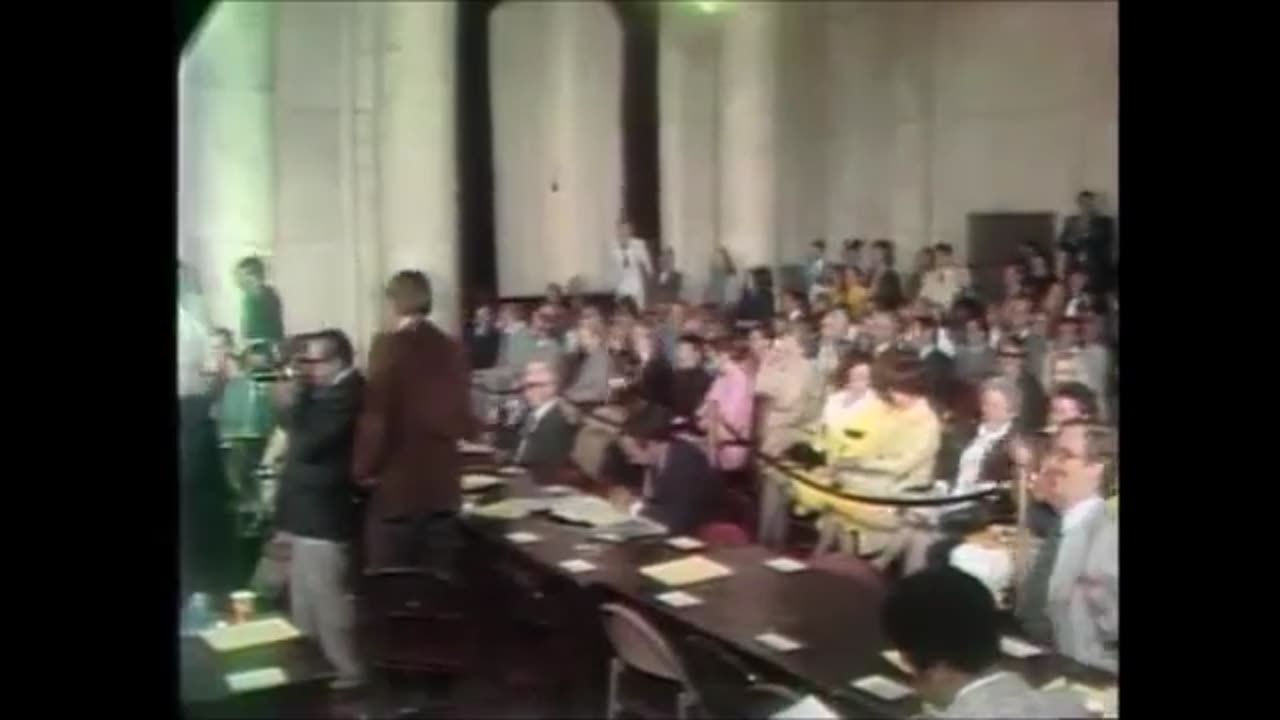
Watergate Hearings Day 40: Pat Buchanan (1973-09-26)
The dark side of history: https://thememoryhole.substack.com/
Patrick Joseph Buchanan (/bjuːˈkænən/; born November 2, 1938) is an American paleoconservative[1] author, political commentator, and politician. Buchanan was an assistant and special consultant to U.S. presidents Richard Nixon, Gerald Ford, and Ronald Reagan.[2] He is an influential figure in the modern paleoconservative movement in America.
In 1992 and 1996, he sought the Republican presidential nomination. In 1992 he ran against incumbent president George H. W. Bush, campaigning against Bush's breaking of his "Read my lips: no new taxes" pledge, as well as his foreign policy and positions on social issues. At the 1992 Republican National Convention, Buchanan delivered his "Culture War" speech in support of the nominated President Bush. In 1996, he ran against eventual Republican nominee Bob Dole, but withdrew after getting only 21 percent of Republican primary votes. In 2000, he was the Reform Party's presidential nominee. His campaign centered on non-interventionism in foreign affairs, opposition to illegal immigration, and opposition to the outsourcing of manufacturing from free trade. He selected educator and conservative activist Ezola Foster as his running-mate.
In 2002, he co-founded The American Conservative magazine and launched a foundation named The American Cause.[3] He has been published in The Occidental Observer, Human Events, National Review, The Nation, and Rolling Stone. The original host on CNN's Crossfire, he was a political commentator on the MSNBC cable network, including the show Morning Joe until February 2012, later appearing on Fox News. Buchanan was also a regular panelist on The McLaughlin Group. Many of his views, particularly his opposition to American imperialism and the managerial state, echo those of the Old Right Republicans of the first half of the 20th century. Since 2006, Buchanan has been a frequent contributor to VDARE.[4][5]
Early life
Buchanan was born in Washington, D.C., a son of William Baldwin Buchanan (August 13, 1905, in Virginia – January 19, 1988 in Washington, D.C.), a partner in an accounting firm, and his wife Catherine Elizabeth (Crum) Buchanan (December 23, 1911, in Charleroi, Washington County, Pennsylvania – September 18, 1995, in Oakton, Fairfax County, Virginia), a nurse and a homemaker.[6][7] Buchanan had six brothers (Brian, Henry, James, John, Thomas, and William Jr.) and two sisters (Kathleen Theresa and Angela Marie, nicknamed Bay). Bay served as U.S. Treasurer under Ronald Reagan. His father was of Irish, English, and Scottish ancestry, and his mother was of German descent.[6][8] He had a great-grandfather who fought in the American Civil War in the Confederate States Army, which is why he is a member of the Sons of Confederate Veterans.[9] He admires Robert E. Lee, Douglas MacArthur and Joseph McCarthy.[10]
Of his Southern ancestry, Buchanan has written:[11]
I have family roots in the South, in Mississippi. When the Civil War came, Cyrus Baldwin enlisted and did not survive Vicksburg. William Buchanan of Okolona, who would marry Baldwin's daughter, fought at Atlanta and was captured by General Sherman. William Baldwin Buchanan was the name given to my father and by him to my late brother. As a member of the Sons of Confederate Veterans, I have been to their gatherings. I spoke at the 2001 SCV convention in Lafayette, LA. The Military Order of the Stars and Bars presented me with a battle flag and a wooden canteen like the ones my ancestors carried.[12]
Buchanan was born into a Catholic family and attended Catholic schools, including the Jesuit-run Gonzaga College High School. As a student at a Catholic college—Georgetown University—he was in the Reserve Officers' Training Corps (ROTC) but did not complete the program. He earned his bachelor's degree in English from Georgetown, and received his draft notice after he graduated in 1960. The District of Columbia draft board exempted Buchanan from military service because of reactive arthritis, classifying him as 4-F. He received a master's degree in journalism from Columbia University in 1962, writing his thesis on the expanding trade between Canada and Cuba.[13]
Career
St. Louis Globe-Democrat editorial writer
Buchanan joined the St. Louis Globe-Democrat at age 23. During the first year of the United States embargo against Cuba in 1961, Canada–Cuba trade tripled. The Globe-Democrat published a rewrite of Buchanan's Columbia master's project under the eight-column banner "Canada sells to Red Cuba — And Prospers" eight weeks after Buchanan started at the paper. According to Buchanan's memoir Right from the Beginning, this article was a career milestone. Buchanan later said the embargo strengthened the communist regime and he turned against it.[14] Buchanan was promoted to assistant editorial page editor in 1964 and supported Barry Goldwater's presidential campaign. The Globe-Democrat did not endorse Goldwater, and Buchanan speculated there was a clandestine agreement between the paper and President Lyndon B. Johnson. Buchanan recalled: "The conservative movement has always advanced from its defeats ... I can't think of a single conservative who was sorry about the Goldwater campaign."[10] According to the foreword (written by Pat Buchanan) in some editions of Goldwater's Conscience of a Conservative, Buchanan was a member of the Young Americans for Freedom and wrote press releases for that organization. He served as an executive assistant in the Nixon, Mudge, Rose, Guthrie, Alexander, and Mitchell law offices in New York City in 1965.
Work for the Nixon White House
Buchanan on July 12, 1969
The next year, he was the first adviser hired by Nixon's presidential campaign;[15] he worked primarily as an opposition researcher. The highly partisan speeches Buchanan wrote were consciously aimed at Richard Nixon's dedicated supporters, for which his colleagues soon nicknamed him Mr. Inside.[16] Buchanan traveled with Nixon throughout the campaigns of 1966 and 1968. He made a tour of Western Europe, Africa and, in the immediate aftermath of the Six-Day War, the Middle East.
During the course of Nixon's presidency, Buchanan became entrusted on press relations, policy positions, and political strategy.[17] Early on during Nixon's presidency, Buchanan worked as a White House assistant and speechwriter for Nixon and Vice President Spiro Agnew. Buchanan coined the phrase "Silent Majority," and helped shape the strategy that drew millions of Democrats to Nixon. In a 1972 memo, he suggested the White House "should move to re-capture the anti-Establishment tradition or theme in American politics."[18] His daily assignments included developing political strategy, publishing the President's Daily News Summary, and preparing briefing books for news conferences. He accompanied Nixon on his trip to China in 1972 and the summit in Moscow, Yalta and Minsk in 1974. He suggested that Nixon label Democratic opponent George McGovern an extremist and burn the White House tapes.[19] Buchanan later argued that Nixon would have survived the Watergate scandal with his reputation intact if he had burnt the tapes.[20]
Buchanan remained as a special assistant to Nixon through the final days of the Watergate scandal. He was not accused of wrongdoing, though some mistakenly suspected him of being Deep Throat. In 2005 when the actual identity of the press leak was revealed as Federal Bureau of Investigation Associate Director Mark Felt, Buchanan called him "sneaky," "dishonest" and "criminal."[21] Because of his role in the Nixon campaign's "attack group," Buchanan appeared before the Senate Watergate Committee on September 26, 1973. He told the panel: "The mandate that the American people gave to this president and his administration cannot, and will not, be frustrated or repealed or overthrown as a consequence of the incumbent tragedy".[19]
When Nixon resigned in 1974, Buchanan briefly stayed on as special assistant under incoming President Gerald Ford. Chief of Staff Alexander Haig offered Buchanan his choice of three open ambassador posts, including South Africa, for which Buchanan opted. President Ford initially signed off on the appointment, but then rescinded it after it was prematurely reported in the Evans-Novak Political Report and caused controversy, especially among the U.S. diplomatic corps.[22]
Buchanan remarked about Watergate: "The lost opportunity to move against the political forces frustrating the expressed national will ... To effect a political counterrevolution in the capital— ... there is no substitute for a principled and dedicated man of the Right in the Oval Office".[19]
Long after his resignation, Nixon called Buchanan a confidant and said he was neither a racist nor an antisemite nor a bigot or "hater," but a "decent, patriotic American." Nixon said Buchanan had "some strong views," such as his "isolationist" foreign policy, with which he disagreed. While Nixon did not think Buchanan should become president, he said the commentator "should be heard."[23][24] However, according to a memo President Nixon sent to John Ehrlichman in 1970, Nixon characterized Buchanan's attitude towards integration as "segregation forever."[25] Following Nixon's re-election in 1972, Buchanan himself had written in a memo to Nixon suggesting he should not "fritter away his present high support in the nation for an ill-advised governmental effort to forcibly integrate races."[26]
News commentator
Buchanan returned to his column and began regular appearances as a broadcast host and political commentator. He co-hosted a three-hour daily radio show with liberal columnist Tom Braden called the Buchanan-Braden Program. He delivered daily commentaries on NBC radio from 1978 to 1984. Buchanan started his TV career as a regular on The McLaughlin Group and CNN's Crossfire (inspired by Buchanan-Braden) and The Capital Gang, making him nationally recognizable. His several stints on Crossfire occurred between 1982 and 1999; his sparring partners included Braden, Michael Kinsley, Geraldine Ferraro, and Bill Press.
Buchanan was a regular panelist on The McLaughlin Group. He appeared most Sundays alongside John McLaughlin and the more liberal Newsweek journalist Eleanor Clift. His columns are syndicated nationally by Creators Syndicate.[27]
Work for the Reagan White House
Buchanan in 1985
Buchanan served as White House Communications Director from February 1985 to March 1987.[28] In a speech to the National Religious Broadcasters in 1986, Buchanan said of the Reagan administration: "Whether President Reagan has charted a new course that will set our compass for decades—or whether history will see him as the conservative interruption in a process of inexorable national decline—is yet to be determined".[19]
A year later, he remarked that "the greatest vacuum in American politics is to the right of Ronald Reagan."[19] While her brother was working for Reagan, Bay Buchanan started a "Buchanan for President" movement in June 1986. She said the conservative movement needed a leader, but Buchanan was initially ambivalent.[19] After leaving the White House, he returned to his column and Crossfire. Out of respect for Jack Kemp he sat out the 1988 race, although Kemp later became his adversary.[18]
Political campaigns
1992 presidential primaries
Main article: 1992 Republican Party presidential primaries
Logo used for Buchanan's 1992 and 1996 campaigns
Buchanan at the Florida State Capitol in 1992
Buchanan was highly critical of the foreign and economic policies of the George H.W. Bush administration, particularly Bush's breaking of his 1988 "Read my lips: no new taxes" pledge.[29] In 1990, Buchanan published a newsletter called Patrick J. Buchanan: From the Right; it sent subscribers a bumper sticker reading: "Read Our Lips! No new taxes."[30] In the 1992 Republican Party presidential primaries, Buchanan challenged Bush in his bid for re-nomination by the Republican Party, launching his campaign in December 1991.[31] Buchanan failed to win any primaries, but finished a strong second in the New Hampshire primary and was regarded as forcing Bush to walk back his economic policies.[29][32] The Buchanan campaign ran a number of radio and TV spots criticizing Bush's policies; in one, Buchanan accused Bush of being a "trade wimp", while another attacked him for presiding over the National Endowment of the Arts, which he said "invested our tax dollars in pornographic and blasphemous art too shocking to show."[33]
In 1992, Buchanan explained his reasons for challenging the incumbent, President George H. W. Bush:
If the country wants to go in a liberal direction, if the country wants to go in the direction of [Democrats] George Mitchell and Tom Foley, it doesn't bother me as long as I've made the best case I can. What I can't stand are the back-room deals. They're all in on it, the insider game, the establishment game—this is what we're running against.[10]
He ran on a platform of immigration reduction and social conservatism, including opposition to multiculturalism, abortion, and gay rights. Buchanan challenged Bush (whose popularity was waning) when he won 38% of the New Hampshire primary. In the primary elections, Buchanan garnered three million total votes or 23% of the vote.
Buchanan later threw his support behind Bush and delivered an address at the 1992 Republican National Convention, which became known as the culture war speech, in which he described "a religious war going on in our country for the soul of America."[34] In the speech, he said of Bill and Hillary Clinton:
The agenda Clinton & Clinton would impose on America—abortion on demand, a litmus test for the Supreme Court, homosexual rights, discrimination against religious schools, women in combat units—that's change, all right. But it is not the kind of change America needs. It is not the kind of change America wants. And it is not the kind of change we can abide in a nation we still call God's country.[35]
Buchanan also said, in reference to the then recently held 1992 Democratic National Convention, "Like many of you last month, I watched that giant masquerade ball at Madison Square Garden—where 20,000 radicals and liberals came dressed up as moderates and centrists—in the greatest single exhibition of cross-dressing in American political history."[36]
The contents of Buchanan's speech prompted his detractors to claim that the speech alienated moderate voters from the Bush-Quayle ticket.[37] The newspaper columnist Molly Ivins wrote: "Many people did not care for Pat Buchanan's speech; it probably sounded better in the original German."[38]
Off the campaign trail
Buchanan returned to his column and Crossfire. To promote the principles of federalism, traditional values, and anti-intervention, he founded The American Cause, a conservative educational foundation, in 1993. Bay Buchanan serves as the Vienna, VA-based foundation's president and Pat is its chairman.[39]
Buchanan returned to radio as host of Buchanan and Company, a three-hour talk show for Mutual Broadcasting System on July 5, 1993. It pitted him against liberal co-hosts, including Barry Lynn, Bob Beckel, and Chris Matthews, in a time slot opposite Rush Limbaugh's show. To launch his 1996 campaign, Buchanan left the program on March 20, 1995.
1996 presidential primaries
Main article: Republican Party (United States) presidential primaries, 1996
Buchanan made another attempt to win the Republican nomination in the 1996 primaries. Democratic President Bill Clinton was seeking reelection, but Clinton's predecessor President George H.W. Bush made clear he was uninterested in regaining the office. The party's front-runner was Sen. Bob Dole of Kansas, the Senate Majority Leader, who was considered to have many weaknesses.[citation needed]
Buchanan contested the Republican nomination from Dole's right, voicing his opposition to the North American Free Trade Agreement (NAFTA). Other candidates for the nomination included Sen. Phil Gramm of Texas, former Tennessee Governor Lamar Alexander and multi-millionaire publisher Steve Forbes.
In February, the liberal Center for Public Integrity issued a report claiming Buchanan's presidential campaign co-chairman, Larry Pratt, appeared at two meetings organized by white supremacist and militia leaders. Pratt denied any tie to racism, calling the report an orchestrated smear before the New Hampshire primary. Buchanan told the conservative Manchester Union Leader he believed Pratt. Pratt took a leave of absence "to answer these charges," "so as not to have distraction in the campaign."[40]
Buchanan defeated Dole by about 3,000 votes, bettering his 1992 second-place finish in the February New Hampshire primary. He was endorsed by conservative Phyllis Schlafly, among others. He won three other states (Alaska, Missouri, and Louisiana), and finished only slightly behind Dole in the Iowa caucus. His insurgent campaign used his soaring rhetoric to mobilize grass-roots right wing opinion against what he saw as the bland Washington establishment (personified by Dole) which he believed had controlled the party for years. At a rally later in Nashua, he said:
We shocked them in Alaska. Stunned them in Louisiana. Stunned them in Iowa. They are in a terminal panic. They hear the shouts of the peasants from over the hill. All the knights and barons will be riding into the castle pulling up the drawbridge in a minute. All the peasants are coming with pitchforks. We're going to take this over the top.[41]
External videos
video icon Booknotes interview with Buchanan on The Great Betrayal, May 17, 1998, C-SPAN
In the Super Tuesday primaries Dole defeated Buchanan by large margins. Having collected only 21%, or 3.1 million, of the total votes in Republican primaries, Buchanan suspended his campaign in March. He declared that, if Dole were to choose a pro-choice running mate, he would run as the US Taxpayers Party (now Constitution Party) candidate.[42] Dole chose Jack Kemp, and he received Buchanan's endorsement. After the 1996 campaign, Buchanan returned to his column and Crossfire. He also began a series of books with 1998's The Great Betrayal.
2000 presidential campaign
Main articles: Reform Party (United States) presidential primaries, 2000 and Pat Buchanan presidential campaign, 2000
Buchanan announced his departure from the Republican Party in October 1999, disparaging them (along with the Democrats) as a "beltway party." He sought the nomination of the Reform Party. Many reformers backed Iowa physicist John Hagelin, whose platform was based on Transcendental Meditation. Party founder Ross Perot did not endorse either candidate for the Reform Party's nomination. (In late October 2000, Perot publicly endorsed George W. Bush, but Perot's 1996 running-mate, Pat Choate, would go on to endorse Buchanan.)
Supporters of Hagelin charged the results of the party's open primary, which favored Buchanan by a wide margin, were "tainted." The Reform Party divisions led to dual conventions being held simultaneously in separate areas of the Long Beach Convention Center complex. Both conventions' delegates ignored the primary ballots and voted to nominate their presidential candidates from the floor, similar to the Democratic and Republican conventions. One convention nominated Buchanan while the other backed Hagelin, with each camp claiming to be the legitimate Reform Party.
Ultimately, when the Federal Elections Commission ruled Buchanan was to receive ballot status as the Reform candidate, as well as about $12.6 million in federal campaign funds secured by Perot's showing in the 1996 election, Buchanan won the nomination. In his acceptance speech, Buchanan proposed US withdrawal from the United Nations and expelling the United Nations Headquarters from New York, abolishing the Internal Revenue Service, Department of Education, Department of Energy, Department of Housing and Urban Development, taxes on inheritance and capital gains, and affirmative action programs.
As his running mate, Buchanan chose African American activist and retired teacher from Los Angeles, Ezola B. Foster. Buchanan was supported in this election run by future Socialist Party USA presidential candidate Brian Moore, who said in 2008 he supported Buchanan in 2000 because "he was for fair trade over free trade. He had some progressive positions that I thought would be helpful to the common man."[43] On August 19, the New York Right to Life Party, in convention, chose Buchanan as their nominee, with 90% of the districts voting for him.[44]
In a campaign speech at Bob Jones University in Greenville, South Carolina, Buchanan attempted to rally his conservative base:
God and the Ten Commandments have all been expelled from the public schools. Christmas carols are out. Christmas holidays are out. The latest decision of the United States Supreme Court said that children in stadiums or young people in high school games are not to speak an inspirational moment for fear they may mention God's name, and offend an atheist in the grandstand ... We may not succeed, but I believe we need a new fighting conservative traditionalist party in America. I believe, and I hope that one day we can take America back. That is why we are building this Gideon's army and heading for Armageddon, to do battle for the Lord.[45]
In the 2000 presidential election, Buchanan finished fourth with 449,895 votes, 0.4% of the popular vote. (Hagelin garnered 0.1% as the Natural Law Party candidate.) In Palm Beach County, Florida, Buchanan received 3,407 votes—which some saw as inconsistent with Palm Beach County's liberal leanings, its large Jewish population and his showing in the rest of the state. As a result of the county's now-infamous "butterfly ballot", he is suspected to have gained close to 3000 inadvertent votes. Bush spokesman Ari Fleischer stated, "Palm Beach county is a Pat Buchanan stronghold and that's why Pat Buchanan received 3,407 votes there." Reform Party officials strongly disagreed, estimating the number of supporters in the county at between 400 and 500. Appearing on The Today Show, Buchanan said: "When I took one look at that ballot on Election Night ... it's very easy for me to see how someone could have voted for me in the belief they voted for Al Gore".[46]
Some observers said his campaign was aimed to spread his message beyond his white conservative and populist base, while his views had not changed.[47]
Later presidential elections
Following the 2000 election, Reform Party members urged Buchanan to take an active role within the party. Buchanan declined, though he did attend their 2001 convention. In the next few years, he identified himself as a political independent, choosing not to align himself with what he viewed as the neo-conservative Republican party leadership. Prior to the 2004 election, Buchanan announced he once again identified himself as a Republican, declared that he had no interest in ever running for president again, and reluctantly endorsed Bush's 2004 reelection, writing: "Bush is right on taxes, judges, sovereignty, and values. Kerry is right on nothing".[48]
Buchanan also endorsed Republican presidential candidate Mitt Romney in 2012, stating in an article that "Obama offers more of the stalemate America has gone through for the past two years" while "Romney alone offers a possibility of hope and change."[49]
Buchanan supported the nomination of Donald Trump, who ran on many of the same positions that Buchanan ran on twenty years prior, as Republican presidential candidate for the 2016 presidential election.[50][51]
Later media activities
MSNBC commentator
Buchanan being interviewed in 2008
Although CNN decided not to take him back, Buchanan's column resumed.[52] A longer variation of the Crossfire format was aired by MSNBC as Buchanan and Press on July 15, 2002, reuniting Buchanan and Press. Billed as "the smartest hour on television", Buchanan and Press featured the duo interviewing guests and sparring about the top news stories. As the Iraq War loomed, Buchanan and Press toned down their rivalry, as they both opposed the invasion.[53] Press claims they were the first cable hosts to discuss the planned attack.[54] MSNBC Editor-in-Chief Jerry Nachman once jokingly lamented this unusual situation:
So the point is why does only Fox [News Channel] get this? At least, we work at the perfect place, the place that's fiercely independent. We try to have balance by putting you two guys together and then this Stockholm syndrome love fest set in between the two of you, and we no longer even have robust debate.[55]
Just hours after his talk show debuted, Buchanan was a guest on the premiere of MSNBC's short-lived Donahue program. Host Phil Donahue and Buchanan debated the separation of church and state. Buchanan called Donahue "dictatorial"[56] and said that the host got his job through affirmative action.[57]
MSNBC President Eric Sorenson canceled Buchanan and Press on November 26, 2003.[53] Buchanan stayed at MSNBC as a political analyst. He regularly appeared on the network's talk shows. He occasionally filled in on the nightly show Scarborough Country during its run on MSNBC. Buchanan also was a frequent guest and co-host of Morning Joe as well as Hardball and The Rachel Maddow Show.
In September 2009, Buchanan wrote an MSNBC opinion column arguing that Adolf Hitler did not want war and the Allied force's actions were unnecessary. The article was removed from the website after MSNBC was urged to do so in a public statement by the National Jewish Democratic Council.[58] Buchanan had used the occasion of the 70th anniversary of the German invasion of Poland to argue that the United Kingdom should not have declared war on Nazi Germany.[59][60] This revived charges of antisemitism and helping to legitimize Holocaust denial.
In October 2011, Buchanan was indefinitely suspended from MSNBC as a contributor after the publication of his book Suicide of a Superpower. One of the book's chapters is titled, "The End of White America."[61] The minority advocacy group Color of Change had urged MSNBC to fire him over alleged racist slurs.[62] It was announced on February 16, 2012, that MSNBC's connection with Buchanan had ended.[63]
The American Conservative magazine
Main article: The American Conservative
In 2002, Buchanan partnered with former New York Post editorial page editor Scott McConnell and journalist Taki Theodoracopulos to found The American Conservative, a new magazine intended to promote traditional conservative viewpoints on economic, immigration and foreign policies. The first issue was dated October 7, 2002.
VDARE
Since 2006, Buchanan has been a frequent contributor to VDARE, a far right website and blog founded by anti-immigration activist and paleo-conservative Peter Brimelow. VDARE is considered a white nationalist news source by the Southern Poverty Law Center.[4][5]
Controversies
Antisemitism allegations
In December 1991, a 40,000-word article by William F. Buckley Jr. was published in the National Review discussing antisemitism among conservative commentators focused largely on Buchanan; the article and many responses to it were collected in the book In Search of Anti-Semitism (1992). He wrote: "I find it impossible to defend Pat Buchanan against the charge that what he did and said during the period under examination amounted to anti-Semitism",[64][65] but concluded: "If you ask, do I think Pat Buchanan is an anti-Semite, my answer is he is not one. But I think he's said some anti-Semitic things".[66]
The Anti-Defamation League has described Buchanan as an "unrepentant bigot" who "repeatedly demonizes Jews and minorities and openly affiliates with white supremacists."[67] In an article for The Washington Post in March 1992, conservative columnist Charles Krauthammer suggested: "The real problem with Buchanan ... is not that his instincts are antisemitic but that they are, in various and distinct ways, fascistic."[68] "There's no doubt," said Krauthammer in 1999 when contacted for a Salon article, "he makes subliminal appeals to prejudice." He added: "The interesting thing is how he can say these things and still be considered a national figure."[26] Buchanan denies assertions that he is an antisemite, and some of his fellow journalists, including Murray Rothbard,[69] Jack Germond, Al Hunt and Mark Shields, have defended him against the charge.[70]
Nazi war criminals
Around 1982,[71] Buchanan began to defend Cleveland auto-worker John Demjanjuk against the charge that Demjanjuk was a Nazi war criminal nicknamed "Ivan the Terrible" responsible for the mass murder of Jews at Treblinka. In 1986, while he was a senior figure in the Reagan administration, he was highly critical of the charges brought by Office of Special Investigations (OSI), the Nazi war crimes unit of the Justice Department. He claimed Demjanjuk was the victim of mistaken identity and possibly the victim of a deliberate frame-up by the Soviet Union.[72]
The following year, while still a member of the administration, he made unofficial attempts to stop the deportation of suspected Nazi war criminals from the Eastern Bloc, including Estonian Karl Linnas as well as Demjanjuk.[73] Menachem Z. Rosensaft, in a New York Times op-ed, described Buchanan's "oft-expressed sympathy for a host of Nazi criminals" like Linnas as being "a constitutionally protected perversion."[74] Buchanan referred to such cases as being pursued by "revenge-obsessed Nazi hunters" in 1987.[75] As a member of the Reagan White House, he was accused of having suppressed the Reagan Justice Department's investigation into Nazi scientists brought to America by the OSS's Operation Paperclip.[76]
In 1990, Allan Ryan Jr., a former head of the OSI said Buchanan's accusation of KGB involvement in the Demjanjuk case was "an absolutely cockamamie theory." Ryan accused Buchanan of being "the spokesman for Nazi war criminals in America." Neal Sher, OSI head in 1990 said Buchanan had never contacted them, even when he was a government official. "He essentially took what was fed him by our opponents, sometimes Holocaust-deniers, and just regurgitated it," Sher told The Washington Post.[71] In 1993, however, the Supreme Court of Israel overturned Demjanjuk's war crimes conviction and sentence of death by hanging as a miscarriage of justice based on mistaken identity. Demjanjuk then returned to the United States to fight the revocation of his American citizenship.[77]
Following an elderly Demjanjuk's re-arrest and extradition to the Federal Republic of Germany in 2009,[78] Menachem Z. Rosensaft in The Times of Israel and Jeffrey Goldberg in The Atlantic, objected to an outraged Buchanan again accusing the case of being a frame-up and comparing Demjanjuk to Jesus Christ and calling him an "American Dreyfuss. [sic]" This was alleged by Goldberg as an example of the libel that the Jews as a whole killed Christ.[79][80] Describing Buchanan's comparison as "strikingly offensive" and an attempt to "revive the charge of blood libel" against Jews, Peter Wehner wrote in Commentary magazine: "Rarely do you find such an obscene mix of blasphemy and bigotry, and all in less than 900 words."[81] Demjanjuk was later convicted of being an accessory to murder of 28,000 Jewish prisoners at the Sobibor extermination camp. Demjanjuk died in 2012, while the verdict had been overturned and was pending appeal.[82]
Bitburg visit by President Reagan
Buchanan supported President Reagan's plan to visit a German military cemetery at Bitburg in 1985, where among buried Wehrmacht soldiers were the graves of 48 Waffen SS members. At the insistence of German Chancellor Helmut Kohl and over the vocal objections of Jewish groups, the trip went ahead.[83] In a 1992 interview, Elie Wiesel described attending a White House meeting of Jewish leaders about the trip: "The only one really defending the trip was Pat Buchanan, saying, 'We cannot give the perception of the President being subjected to Jewish pressure.'"[84] Buchanan accused Wiesel of fabricating the story in an ABC interview in 1992: "I didn't say it and Elie Wiesel wasn't even in the meeting ... That meeting was held three weeks before the Bitburg summit was held. If I had said that, it would have been out of there within hours and on the news."[85]
Comments on the Holocaust
In a 1990 column for the New York Post, Buchanan wrote that it was impossible for 850,000 Jews to be killed by diesel exhaust fed into the gas chamber at Treblinka in a return to his interest in the Demjanjuk case. "Diesel engines do not emit enough carbon monoxide to kill anybody," he wrote. The Washington Post cited experts to the effect that there is more than sufficient carbon monoxide present in the fumes to speedily asphyxiate victims, causing their death.[71][86] Buchanan once argued Treblinka "was not a death camp but a transit camp used as a 'pass-through point' for prisoners". In fact, historians have estimated that some 900,000 Jews were murdered at Treblinka.[87] When George Will challenged him on the issue on TV in December 1991, Buchanan did not reply.[64]
Comments about Israel
In the context of the Gulf War, on August 26, 1990, Buchanan appeared on The McLaughlin Group and said: "there are only two groups that are beating the drums for war in the Middle East – the Israeli defense ministry and its 'amen corner' in the United States." Buchanan on The McLaughlin Group on June 15, 1990, asserted: "Capitol Hill is Israeli occupied territory".[88] He also said in the August 1990 program: "The Israelis want this war desperately because they want the United States to destroy the Iraqi war machine. They want us to finish them off. They don't care about our relations with the Arab world."[89] A. M. Rosenthal, in an article for The New York Times explicitly accused Buchanan of antisemitism on the grounds that he had used the word "Israelis" as a cover for Jews.[90] Abraham Foxman, the director of the ADL, compared Buchanan's comments to insinuations made during the Second World War "that Jews were the only ones who sought American entry in the war against Nazi Germany".[89]
Holocaust survivor Elie Wiesel in September 1990 said Buchanan "leaves the memory of Jewish victims in such disdain; a man who always takes the side of those accused of being killers; a man who is constantly criticizing Israel; a man who always has something nasty to say about the Jewish people".[71]
Central Park jogger case
In a 1989 column, Buchanan called for the public hanging in Central Park of a 16-year-old black teenager and the horsewhipping of four other younger African American and Hispanic teenagers for allegedly raping a white jogger in the Central Park Five case.[91] He also called for the civilizing of "barbarians" by putting the "fear of death" in them. Robert C. Smith, professor of political science at San Francisco State University, characterized the column as racist.[92][better source needed] The five teenagers were convicted, but their charges were later withdrawn, when in 2002 a man said he acted alone and DNA testing affirmed his guilt.[91]
Personal life
Buchanan's wife Shelley in 1996
Buchanan married White House staffer Shelley Ann Scarney in 1971.[93] They had a tabby cat named Gipper, who reportedly sat on Buchanan's lap during staff meetings.[94] Buchanan identifies as a traditionalist Catholic who attends Mass in the extraordinary form of the Roman Rite,[95] and strongly defended Summorum Pontificum.[96]
Electoral history
Main article: Electoral history of Pat Buchanan
Publications
External videos
video icon "A Firing Line Debate: Resolved: That the Senate Should Ratify the Proposed Panama Canal Treaties." Firing Line with William F. Buckley, Jr. (January 13, 1978)
Books
Buchanan, Patrick J. (1973), The New Majority: President Nixon at Mid-Passage, OCLC 632575.
Buchanan, Patrick J. (1975), Conservative Votes, Liberal Victories: Why the Right Has Failed, Quadrangle/New York Times Book Company, ISBN 0-8129-0582-2.
Buchanan, Patrick J. (December 25, 1988), Right from the Beginning, Boston: Little, Brown, ISBN 0-316-11408-1.
Buchanan, Patrick J. (1998), The Great Betrayal: How American Sovereignty and Social Justice Are Being Sacrificed to the Gods of the Global Economy, Little, Brown, ISBN 0-316-11518-5.
Buchanan, Patrick J. (1999), A Republic, Not an Empire: Reclaiming America's Destiny, Regnery Pub., ISBN 0-89526-272-X.
Buchanan, Patrick J. (2002), The Death of the West: How Dying Populations and Immigrant Invasions Imperil Our Country and Civilization, New York USA: St. Martin's Press, ISBN 0-312-28548-5, OCLC 48123033.
Buchanan, Patrick J. (2004), Where the Right Went Wrong: How Neoconservatives Subverted the Reagan Revolution and Hijacked the Bush Presidency, St. Martin's Press, ISBN 0-312-34115-6.
Buchanan, Patrick J. (2006). State of Emergency: The Third World Invasion and Conquest of America. New York: Thomas Dunne Books, OCLC 69594056 ISBN 0-312-36003-7. Full text available.
Buchanan, Patrick J. (November 27, 2007), Day of Reckoning: How Hubris, Ideology, and Greed Are Tearing America Apart, Macmillan, ISBN 978-0-312-37696-3.
Buchanan, Patrick J. (May 27, 2008), Churchill, Hitler, and The Unnecessary War: How Britain Lost Its Empire and the West Lost the World, New York: Crown, ISBN 978-0-307-40515-9, OCLC 182573642.
Buchanan, Patrick J. (October 18, 2011), Suicide of a Superpower: Will America Survive to 2025?, St. Martin's Press, ISBN 978-0-312-57997-5.
Buchanan, Patrick J. (January 1, 2014), The Greatest Comeback: How Richard Nixon Rose from Defeat to Create the New Majority, Crown Forum, ISBN 978-0-553-41863-7.
Buchanan, Patrick J. (May 9, 2017), Nixon's White House Wars: The Battles That Made and Broke a President and Divided America Forever, Crown Publishing, ISBN 978-1-101-90284-4.
Major speeches
1992 Republican National Convention keynote, August 17, 1992
The Cultural War for the Soul of America, September 14, 1992
1996 campaign announcement, March 20, 1995
1996 campaign speech Archived November 14, 2012, at the Wayback Machine, Georgia primary stump speech February 29, 1996
Free Trade, Chicago Council on Foreign Relations speech November 18, 1998
2000 campaign announcement, March 2, 1999
A Time for Truth about China, Commonwealth Club speech April 5, 1999
To Reunite a Nation, Richard Nixon Library speech on immigration January 18, 2000
2000 Reform Party nomination acceptance, August 12, 2000
Death of The West, Commonwealth Club speech January 14, 2002
Selected articles
A Lesson in Tyranny Too Soon Forgotten (column), August 25, 1977.
'Ivan The Terrible' – More Doubts (column), Real Change, March 17, 1990.
Ghostbusting the Smoot-Hawley Ogre (column), October 20, 1993.
Time for Economic Nationalism, June 12, 1995, archived from the original (column) on October 8, 2008.
"Response to Norman Podhoretz", The Wall Street Journal, November 5, 1999, archived from the original (letter) on May 11, 2008.
The Sad Suicide of Admiral Nimitz, January 18, 2002, archived from the original (column) on February 12, 2011, retrieved September 6, 2006.
True Fascists of the New Europe, April 30, 2002, archived from the original (column) on May 18, 2011, retrieved September 6, 2006.
"Whose War?", American Conservative, March 24, 2003, archived from the original on January 5, 2009.
"The Death of Manufacturing", American Conservative, August 11, 2003, archived from the original on July 20, 2008, retrieved September 2, 2006.
"The Death of the West", NBC News (book excerpt), MSN, October 30, 2003.
The Aggressors in the Culture Wars, March 8, 2004, archived from the original (column) on October 4, 2006, retrieved September 2, 2006.
What Do We Offer the World?, May 19, 2004, archived from the original (column) on December 28, 2009, retrieved September 21, 2006.
Where are the Christians?, July 18, 2006, archived from the original (column) on July 25, 2011, retrieved September 2, 2006.
PJB: A Brief For Whitey, March 21, 2008, archived from the original (column) on August 22, 2008.
Blowback From Bear Baiting (column), August 15, 2008.
Several years archives, The American cause, September 2001 – May 2008, archived from the original (newspaper columns) on June 3, 2018, retrieved September 2, 2006.
Interviews
Chu, Jefferson 'Jeff' (August 20, 2006), "Ten Questions for Pat Buchanan", Time, archived from the original on September 30, 2007.
Hannity; Colmes (August 22, 2006), "Pat Buchanan Defends Controversial Immigration Comments", News, Fox, archived from the original (partial transcript) on May 14, 2011, retrieved January 27, 2019.
Kauffman, William 'Bill' (July–August 1998), "Is This the Face of the Twenty-First Century?", The American Enterprise, archived from the original on January 5, 2006.
Lamb, Brian (May 17, 1998), "Buchanan on The Great Betrayal", Booknotes, archived from the original (interview) on November 8, 2011.
Lydon, Christopher (July 7, 2005), "Republicans: Whitman, Buchanan and Terror", Open Source (public radio show audio).
Slen, Peter. In Depth with Pat Buchanan. C-SPAN, May 2, 2010.
Pat Buchanan discusses his book State of Emergency, Book TV, August 24, 2006, archived from the original (video) on September 27, 2007.[dead link]
Alberta, Tim (April 22, 2017), "The Ideas Made It, But I Didn't", Politico Magazine, retrieved April 24, 2017.
In popular culture
A fictional version of Buchanan appears in the 2009 film Watchmen, portrayed by James M. Connor.
Buchanan appears as the final boss of the 1992 video game GayBlade.
Buchanan was played by Phil Hartman in the Saturday Night Live parodies of The McLaughlin Group.
See also
Christian right
Constitution Party (United States)
Culture war
Non-interventionism
Old Right (United States)
Paleoconservatism
Right-wing populism
Protectionism
White nationalism
References
"Unpatriotic Conservatives" Archived January 8, 2010, at the Wayback Machine David Frum, April 7, 2003, National Review.
"Pat Buchanan Biography & Facts". Encyclopedia Britannica. Retrieved June 7, 2018.
Foley, Michael (2007). American credo: the place of ideas in US politics. US: Oxford University Press. p. 318. ISBN 978-0-19-923267-3.
Hayden, Michael Edison; Gais, Hannah (December 14, 2020). "White Nationalists Sought Resumes for Trump White House, Emails Show". Southern Poverty Law Center. Retrieved June 18, 2021. "To date, her byline [Ann Coulter] has appeared on VDARE's website nearly 400 times across a span of seven years, making her arguably the most famous person on it, along with anti-immigrant politician Pat Buchanan."
"VDare". www.influencewatch.org. Retrieved June 18, 2021.
Reitwiesner, William Addams; Moran, Nolan Kent; Otto, Julie Helen. "The Ancestry of Pat Buchanan". Wargs. Retrieved June 13, 2010.
"Pat Buchanan Biography". Notable Biographies. Thomson Gale. Retrieved November 1, 2006.
"Index to Politicians:Buchanan". The Political Graveyard. Retrieved August 8, 2013.
Buchanan, Patrick 'Pat' Joseph (November 26, 2003), "Why Do the Neocons Hate Dixie So?", The American Cause, Patrick 'Pat' Joseph Buchanan, archived from the original on March 25, 2009, retrieved June 13, 2010
Allen, Henry (February 17, 1992). "The Iron Fist of Pat Buchanan". The Washington Post.
"The American Conservative -- Why Do They Hate Dixie?". December 3, 2010. Archived from the original on December 3, 2010. Retrieved April 4, 2022.
Buchanan, Patrick 'Pat' Joseph (December 1, 2003). "Why Do They Hate Dixie?". The American Conservative. Retrieved December 28, 2011.
Lichfield, John (September 12, 1992). "America's artful draft dodgers: John Lichfield in Washington on the loyal servants who did not serve in Vietnam". The Independent. London. Archived from the original on May 25, 2022. Retrieved March 6, 2017.
"Buchanan Is Right on Trade Sanctions". Daily Policy Digest. National Center for Policy Analysis. January 3, 2000. Archived from the original on June 16, 2006. Retrieved November 1, 2006.
Bruan, Stephen (December 18, 1994). "A Trial by Fire in the '60s". Los Angeles Times.
Schell, Jonathan (June 2, 1975). "The Time of Illusion". The New Yorker. Retrieved April 27, 2020.
Cox Han, Lori (2019). "Advising Nixon: The White House Memos of Patrick J. Buchanan". kansaspress.ku.edu. University Press of Kansas. Archived from the original on January 13, 2020. Retrieved January 13, 2020.
Paulsen, Monte (November 22, 1999). "Buchanan Inc". Nation. Archived from the original on April 28, 2005. Retrieved November 1, 2006.
Blumenthal, Sidney (January 8, 1987). "Pat Buchanan and the Great Right Hope". The Washington Post. p. C01. Retrieved November 1, 2006.
Graff, Garrett M. (2022). Watergate: A New History (1 ed.). New York: Avid Reader Press. p. 456. ISBN 978-1-9821-3916-2. OCLC 1260107112.
"Nixon aides say Felt is no hero". NBC News. June 1, 2005. Retrieved November 1, 2006.
"Pat Buchanan". May 29, 2013.
"Part 2, Bush's Foreign Policy", 1992 Nixon Interview, CNN, April 23, 1994
Larry King Live (transcript), CNN, April 23, 1994, #1102 (R-#469)
Warren, James (June 20, 1991). "Family Feud". Chicago Tribune. Retrieved April 27, 2020.
Tapper, Jake (September 4, 1999). "Who's afraid of Pat Buchanan?". Salon. Retrieved April 27, 2020.
"The Enemy of My Enemy on". Creators.com. Retrieved March 29, 2015.
"Buchanan Will Leave White House Post". Los Angeles Times. February 4, 1987. Retrieved March 29, 2015.
"The Problem With 'Read My Lips'". The New York Times. November 1, 2020. p. 26. Archived from the original on November 1, 2020. Retrieved November 28, 2021. "Even so, voters could not forget the fiercely dramatic 1988 pledge. Playing to feelings of inconstancy, Patrick Buchanan challenged Mr. Bush in Presidential primaries."
Hays (July 27, 1990), The Washington Times (column)
Toner, Robin (December 11, 1991). "Buchanan, Urging New Nationalism, Joins '92 Race". The New York Times.
Daley, Steve (February 28, 1992). "Stung by Bush Ad, Buchanan Gets Ferocious". Chicago Tribune. Retrieved March 11, 2021.
Mills, David (June 15, 1992). "The Director with Tongues Untied". The Washington Post. Retrieved November 28, 2021.
Buchanan, Patrick 'Pat' Joseph, 1992 Republican National Convention Speech, buchanan.org
Buchanan, Patrick 'Pat' Joseph (August 17, 1992). "Republican National Convention Speech". Patrick 'Pat' Joseph Buchanan. Archived from the original on October 12, 2006. Retrieved November 4, 2006.
"1992 Republican National Convention Speech". Patrick J. Buchanan - Official Website. August 17, 1992. Archived from the original on October 5, 2014.
Kuhn, David Paul (October 18, 2004). "Buchanan Reluctantly Backs Bush". News. CBS. Retrieved December 6, 2006.
Roberts, Diane (July 30, 2000). "Perspective: A wild ride on the left". St. Petersburg Times.com. Archived from the original on September 2, 2000. Retrieved January 18, 2019.
"About the Cause". The American Cause. Patrick 'Pat' Joseph Buchanan. Archived from the original on November 10, 2006. Retrieved November 4, 2006.
"Buchanan Aide Leaves Campaign Amid Charges", The Union Leader, February 16, 1996
Knowlton, Brian (February 20, 1996). "Republicans Wind Up Bare-Fisted Donnybrook in New Hampshire". The New York Times.
Porteous, Skipp (April 1996), "Howard Phillips on Pat Buchanan", Freedom Writer, Public Eye
"Q&A with Socialist Party presidential candidate Brian Moore". Independent Weekly. October 8, 2008. Archived from the original on January 4, 2016. Retrieved November 25, 2008.
Right To Life Party Picks Buchanan, Ballot Access News, August 1, 2000, archived from the original on August 20, 2002
Quoted in Timothy Stanley, The Crusader: The Life and Tumultuous Times of Pat Buchanan (New York City: St. Martin's Press, 2012), pp. 350–351; ISBN 978-0-312-58174-9
"Pat Buchanan on NBC's Today Show". November 9, 2000.
Havrilesky, Heather (October 25, 1999). "Not standing Pat". Salon. Archived from the original on April 23, 2008. Retrieved June 13, 2010.
Miller, Stephen 'Steve' (September 10, 2004), "Third parties seen as thread to Bush", The Washington Times
Patrick J Buchanan (October 30, 2012). "Patrick Buchanan: Romney For President - OpEd". Eurasiareview.com. Retrieved March 29, 2015.
Chris Cillizza (January 12, 2016). "Pat Buchanan says Donald Trump is the future of the Republican Party". The Washington Post.
Alberta, Tim. "'The Ideas Made It, But I Didn't'". Politico Magazine. Arlington County, Virginia, U.S.: Politico. Retrieved April 22, 2017.
Kurtz, Howard (May 1, 2006). "Tony Snow's Washington Merry-Go-Round". The Washington Post. p. C01. Retrieved December 5, 2006.
Bloom, Jordan (June 6, 2012) When News Is Propaganda Archived March 21, 2016, at the Wayback Machine The American Conservative.
William 'Bill' Press. "Making Air-Waves". Archived from the original on November 7, 2006. Retrieved December 5, 2006.
Buchanan and Press (broadcast), November 19, 2002
Buchanan, Patrick 'Pat' Joseph, Donahue, MSNBC, "Cut it out, Phil. What you want done is, I say no Jewish kid can be put in a Nativity play. What you want done is no Nativity play, no Pledge of Allegiance, no Bible in school, no Ten Commandments. You are dictatorial, Phil. You're a dictatorial liberal and you don't even know it"
Acosta, Belinda (July 26, 2002). "The Phil-ing Station". The Austin Chronicle. Retrieved December 5, 2006.
"MSNBC removes Buchanan column defending Hitler". Jewish Telegraphic Agency. September 3, 2009. Archived from the original on June 9, 2012.
Calderone, Michael (September 3, 2009), "MSNBC removes Buchanan column from site" (blog), Politico
Buchanan, Patrick 'Pat' Joseph (September 2009). "Did Hitler Want War?". Patrick 'Pat' Joseph Buchanan. Retrieved July 28, 2011.
Hawley, George (2017). Making Sense of the Alt-Right. Columbia University Press. p. 32. ISBN 978-0-231-54600-3.
Associated Press, January 7, 2012, MSNBC chief says he hasn't decided whether commentator Pat Buchanan will return to network Archived March 4, 2016, at the Wayback Machine, hosted The Washington Post, accessed January 7, 2012.
Mak, Tim (February 17, 2012). "Pat Buchanan axed by MSNBC". Politico. Retrieved April 28, 2020.
"Is Pat Buchanan anti-semitic?". Newsweek. December 22, 1991.
Glazer, Nathan (July 16, 2000). "The Enmity Within". The New York Times. Retrieved April 28, 2020.
Chavez, Linda (April 30, 2009). An Unlikely Conservative: The Transformation Of An Ex-liber. Basic Books. p. 207. ISBN 978-0-7867-4672-9.
"Patrick Buchanan: Unrepentant Bigot". Anti-Defamation League. May 21, 2009. Archived from the original (special report) on October 30, 2012. Retrieved June 18, 2011.
Krauthammer, Charles (March 1, 1992). "Buchanan Explained". The Washington Post. Retrieved August 20, 2020.
"COLUMN RIGHT/ MURRAY N. ROTHBARD: Buchanan an Anti-Semite? It's a Smear: His enemies labored hard, and brought forth a pitiful mouse". Los Angeles Times. January 6, 1992.
"Pat Buchanan and the Jews". Judaism. Find Articles. 1996.
Kurtz, Howard (September 20, 1990). "Pat Buchanan The Jewish Question". The Washington Post. Retrieved June 17, 2020.
Ryan, Allan A. Jr (October 26, 1986). "Pat Buchanan Is Wrong". The Washington Post. Retrieved August 20, 2020.
Shenon, Philip (February 19, 1987). "The Buchanan Aggravation". The Washington Post. Retrieved August 20, 2020.
Rosensaft, Menachem Z. (March 31, 1987). "Deport Karl Linnas To the Soviet Union". The New York Times. Retrieved August 20, 2020.
Buchanan, Patrick J. (April 7, 1987). "Dr. Hammer's Role in 'Ivan the Terrible' Trial; Get It Out in the Open". The New York Times. Retrieved August 20, 2020.
"Nazis Helped Get Us To The Moon. The Reagan White House Helped Keep Them In The U.S." (news report/book review). The Huffington Post. November 8, 2014.
Hedges, Chris (August 12, 1993). "Israel recommends that Demjanjuk be released". The New York Times.
Mustich, Emma (May 12, 2011). "After decades, Demjanjuk found guilty in Germany". Salon. Retrieved August 20, 2020.
Rosensaft, Menachem Z. (February 21, 2012). "The Sins Of Pat Buchanan". Times of Israel. Retrieved August 20, 2020.
Goldberg, Jeffrey (April 29, 2009). "Pat Buchanan is Slipping, Poor Thing". The Atlantic. Retrieved August 20, 2020.
Wehner, Peter (April 30, 2009). "Pat Buchanan's Latest anti-Semitic Outburst". Commentary. Retrieved August 20, 2020.
Mustich, Emma (May 12, 2011). "After decades, Demjanjuk found guilty in Germany". Salon. Retrieved August 20, 2020.
Weinraub, Bernard (May 6, 1985). "Reagan Joins Kohl in Brief Memorial at Bitburg Graves". The New York Times. Archived from the original on October 18, 2016. Retrieved January 22, 2009.
Dionne, E. J. (February 29, 1992). "Is Buchanan Courting Bias?". The Washington Post. Retrieved August 20, 2020.
As quoted by Crossfire on CNN (February 24, 1992). Transcript No. 514.
Buchanan, Patrick (March 17, 1990). ""Ivan the Terrible" - More Doubts". New York Post.
Lichtblau, Eric, (2015) The Nazis Next Door, How America Became a Save Haven for Hitler's Men, p. 194, Published by Houghton, Mifflin, Harcourt, Boston.
"Pat Buchanan in his own words". ADL. Archived from the original on October 26, 2012.
"Behind the Headlines; Buchanan's Latest Anti-israel Slur May Signal New Conservative Trend". Jewish Telegraphic Agency. August 31, 1990. Retrieved August 20, 2020.
Rosenthal, A. M. (September 14, 1990). "On My Mind; Forgive Them Not". The New York Times. Retrieved August 20, 2020.
Dwyer, Jim (May 30, 2019). "The True Story of How a City in Fear Brutalized the Central Park Five". The New York Times. ISSN 0362-4331. Retrieved May 12, 2022. "The victim was white. The accused were black and brown. If 'the eldest of that wolf pack were tried, convicted and hanged in Central Park, by June 1, and the 13- and 14-year-olds were stripped, horsewhipped, and sent to prison,' the columnist Patrick Buchanan wrote, 'the park might soon be safe again for women.' Note for note, without mention of race, Mr. Buchanan and others echoed the historic calls for the public punishment of dark-skinned men thought to have defiled white women."
Smith, Robert C. (1995). Racism in the Post-Civil Rights Era. State University of New York Press. pp. 21–22. ISBN 0-7914-2438-3. OCLC 30625417. Archived from the original on June 8, 2019. Retrieved June 8, 2019. {{cite book}}: |website= ignored (help)
"About Pat Bunchanan". Creators Syndicate. Retrieved January 21, 2007.
Hartman, Holly (February 4, 2000). "New First Pets". Info Please. Sandbox. Archived from the original on November 26, 2020. Retrieved April 22, 2011.
Sean Salai, S.J. (August 5, 2014). "Remembering Nixon's Catholic Coup: An Interview with Pat Buchanan". Retrieved June 28, 2020.
Buchanan, Pat (July 10, 2007). "A Triumph for Traditionalists". Retrieved June 28, 2020.
Further reading
Andryszewski, Tricia. The Reform Party: Ross Perot and Pat Buchanan (2000) online
Davis, Mark. "'Culture Is Inseparable from Race': Culture Wars from Pat Buchanan to Milo Yiannopoulos." M/C Journal 21.5 (2018). online
Lowndes, Joseph. "Populism and race in the United States from George Wallace to Donald Trump." in Routledge handbook of global populism (Routledge, 2018) pp. 190–200.
Shapiro, Edward S. "Pat Buchanan and the Jews." Judaism: A Quarterly Journal of Jewish Life and Thought 45.2 (1996): 226-235. online
Stanley, Timothy. The crusader: The life and tumultuous times of Pat Buchanan (Macmillan, 2012). online
External links
Wikimedia Commons has media related to Pat Buchanan.
Wikiquote has quotations related to Pat Buchanan.
Official website
Patrick J. Buchanan at OpenLibrary
Patrick J. Buchanan at WorldCat
Archives
Appearances on C-SPAN
Patrick J. Buchanan Papers (White House Special Files) Archived October 23, 2019, at the Wayback Machine (1969-1972)
Works by Patrick J. Buchanan at Internet Archive
Works by Patrick J. Buchanan at LewRockwell.com
Works by Patrick J. Buchanan Archived June 3, 2018, at the Wayback Machine at TheAmericanCause.org
Political offices
Preceded by
Michael McManus
White House Director of Communications
1985–1987 Succeeded by
Jack Koehler
Party political offices
Preceded by
Ross Perot
Reform nominee for President of the United States
2000 Succeeded by
Ralph Nader
vte
Pat Buchanan
Books
A Republic, Not an Empire (1999) The Death of the West (2001) State of Emergency (2006) Churchill, Hitler and the Unnecessary War (2008)
Electoral career
Electoral history 2000 presidential campaign
Meatballs
Media
The American Conservative Buchanan & Press GayBlade Trust
vte
Reform Party of the United States of America
Presidential tickets
1996: Perot/Choate 2000: Buchanan/Foster 2004: Nader/Camejo 2008: Weill/McEnulty 2012: Barnett/Cross 2016: De La Fuente/Steinberg 2020: De La Fuente/Richardson
Primaries
1996 primaries 2000 primaries 2004 primaries 2008 primaries 2012 primaries 2016 primaries 2020 primaries
Other notable
individuals
Russ Verney Jesse Ventura Mae Schunk Richard Lamm Ed Zschau Buddy Roemer Donald Trump
Parties by state
New Jersey New York
List of third-party and independent performances in United States elections
vte
(← 1988) 1992 United States presidential election (1996 →)
Democratic Party
Convention
Primaries
Candidates
Nominee: Bill Clinton
campaign positions VP nominee: Al Gore
Other candidates: Larry Agran Jerry Brown Tom Harkin
campaign Bob Kerrey Lyndon LaRouche
campaign positions Tom Laughlin Eugene McCarthy Paul Tsongas Douglas Wilder Charles Woods
Republican Party
Convention
Primaries
Candidates
Incumbent nominee: George H. W. Bush
campaign Incumbent VP nominee: Dan Quayle
Other candidates: Pat Buchanan David Duke Jack Fellure Isabell Masters Pat Paulsen Tennie Rogers Harold Stassen
Independent
Candidate: Ross Perot
campaign VP candidate: James Stockdale
Other independent and third-party candidates
Libertarian Party
Convention Nominee: Andre Marrou VP nominee: Nancy Lord
Natural Law Party
Nominee
John Hagelin
VP nominee
Mike Tompkins
New Alliance Party
Nominee
Lenora Fulani
VP nominee
Maria Elizabeth Muñoz
Prohibition Party
Nominee
Earl Dodge
VP nominee
George Ormsby
Socialist Party USA
Nominee
J. Quinn Brisben
VP nominee
Barbara Garson
Socialist Workers Party
Nominee
James Warren
VP nominee
Willie Mae Reid
U.S. Taxpayers Party
Nominee
Howard Phillips
VP nominee
Albion W. Knight Jr.
Workers World Party
Nominee
Gloria La Riva
VP nominee
Larry Holmes
Independents and other candidates
Ronald Daniels (running mate: Asiba Tupahache)
Bo Gritz
Isabell Masters
Other 1992 elections
House
Senate
Gubernatorial
vte
(← 1992) 1996 United States presidential election (2000 →)
Democratic Party
Convention
Primaries
Candidates
Incumbent nominee: Bill Clinton
campaign positions Incumbent VP nominee: Al Gore
Other candidates: James D. Griffin Lyndon LaRouche
campaign positions Pat Paulsen Roland Riemers
Republican Party
Convention
Primaries
Candidates
Nominee: Bob Dole
campaign VP nominee: Jack Kemp
Other candidates: Lamar Alexander Pat Buchanan Charles E. Collins Bob Dornan Jack Fellure Arthur Fletcher Steve Forbes Phil Gramm Alan Keyes Richard Lugar Isabell Masters Jimmy McMillan Tennie Rogers Arlen Specter Morry Taylor Pete Wilson
Reform Party
Primaries
Candidates
Nominee: Ross Perot
campaign VP nominee: Pat Choate
Other candidates: Richard Lamm
campaign
Other Third-party and independent candidates
Green Party
Convention Nominee: Ralph Nader
campaign VP nominee: Winona LaDuke
Independent Grassroots Party
Nominee
John Birrenbach
VP nominee
George McMahon
Libertarian Party
Convention Nominee: Harry Browne VP nominee: Jo Jorgensen Other candidates: Irwin Schiff
Natural Law Party
Nominee
John Hagelin
VP nominee
Mike Tompkins
Prohibition Party
Nominee
Earl Dodge
VP nominee
Rachel Bubar Kelly
Socialist Party
Nominee
Mary Cal Hollis
VP nominee
Eric Chester
Socialist Workers Party
Nominee
James Harris
U.S. Taxpayers Party
Nominee
Howard Phillips
VP nominee
Herb Titus
Workers World Party
Nominee
Monica Moorehead
VP nominee
Gloria La Riva
Independents and other candidates
Joan Jett Blakk Marsha Feinland Isabell Masters Steve Michael Dennis Peron
Other 1996 elections
House
Senate
Gubernatorial
vte
(← 1996) 2000 United States presidential election (2004 →)
General election results
Florida results
Republican Party
Convention Primaries
Candidates
Nominee: George W. Bush
campaign positions VP nominee: Dick Cheney
Other candidates Lamar Alexander Gary Bauer Pat Buchanan
campaign Herman Cain
positions Elizabeth Dole Jack Fellure Steve Forbes Orrin Hatch
campaign John Kasich
campaign positions Alan Keyes
campaign Andy Martin John McCain
campaign positions Dan Quayle
campaign Bob Smith
Democratic Party
Convention Primaries
Candidates
Nominee: Al Gore
campaign VP nominee: Joe Lieberman
positions
Other candidates: Bill Bradley
campaign Lyndon LaRouche
campaign positions
Constitution Party
Convention Nominee: Howard Phillips VP nominee: Curtis Frazier Other candidates: Herb Titus
Green Party
Convention Nominee: Ralph Nader
campaign VP nominee: Winona LaDuke Other candidates: Jello Biafra Stephen Gaskin Joel Kovel
Libertarian Party
Convention Nominee: Harry Browne
campaign VP nominee: Art Olivier Other candidates: Barry Hess L. Neil Smith
Reform Party
Primaries Nominee: Pat Buchanan
campaign VP nominee: Ezola B. Foster Other candidates: John Hagelin Donald Trump
campaign positions
Natural Law Party
Nominee: John Hagelin VP nominee: Nat Goldhaber
Prohibition Party
Nominee: Earl Dodge VP nominee: W. Dean Watkins
Socialist Party
Nominee: David McReynolds VP nominee: Mary Cal Hollis
Socialist Workers Party
Nominee: James Harris VP nominee: Margaret Trowe
Workers World Party
Nominee: Monica Moorehead VP nominee: Gloria La Riva
Independent
Cathy Gordon Brown Charles E. Collins Isabell Masters Joe Schriner
Florida election recount and legal proceedings
Key figures
Katherine Ha
-
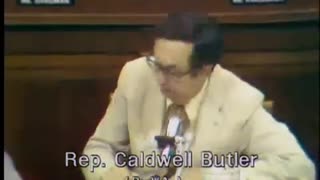 8:57:26
8:57:26
The Memory Hole
5 months agoNixon Impeachment Hearings Day 7 (1974-07-30)
1.16K1 -
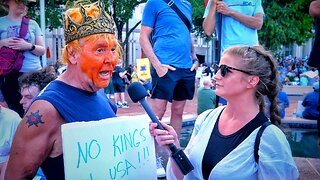 28:43
28:43
Liberty Hangout
3 days agoAnti-Trumpers Don't Know What They're Protesting
33K192 -
 20:33
20:33
Sideserf Cake Studio
1 day ago $3.36 earnedI Built A Bikini Bottom Fish Tank CAKE!
27.5K11 -
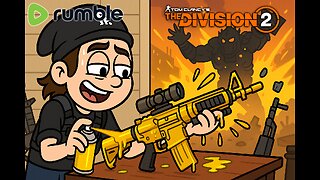 LIVE
LIVE
Gore TV
25 minutes agoNO LOOT?! Fine 😤 I’ll Build My Own Gun! 🔫🪵✨
11 watching -
 LIVE
LIVE
XxXAztecwarrior
44 minutes agoPlaying Normals Big Red Hunting Delta Force
48 watching -
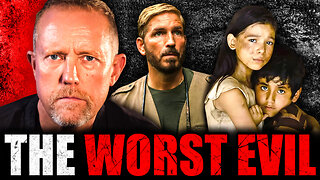 2:22:46
2:22:46
The Connect: With Johnny Mitchell
23 hours ago $13.82 earnedOne Man's Mission To Stop Human Trafficking: How A Billionaire Mercenary Saved Hundreds Of Children
41.4K32 -
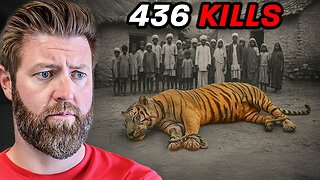 16:24
16:24
Forrest Galante
16 hours ago6 Deadliest Man Eaters to Ever Exist
81.4K18 -
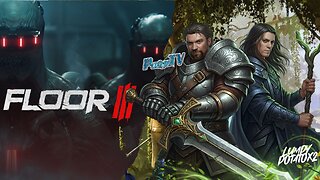 LIVE
LIVE
LumpyPotatoX2
4 hours agoKilling Floor 3 + SoulFrame: Co-op Showcase - #RumbleGaming
90 watching -
 LIVE
LIVE
TheItalianCEO
4 hours agoPlaying video games on a Sunday since 1989
189 watching -
![[GB]Long Stream?!?! ✨ Turtle Beach Partner !TB](https://1a-1791.com/video/fww1/20/s8/1/K/9/Z/5/K9Z5y.0kob-small-GBLong-Stream-Turtle-Beach-.jpg) LIVE
LIVE
OneRandomDolly
3 hours ago[GB]Long Stream?!?! ✨ Turtle Beach Partner !TB
173 watching